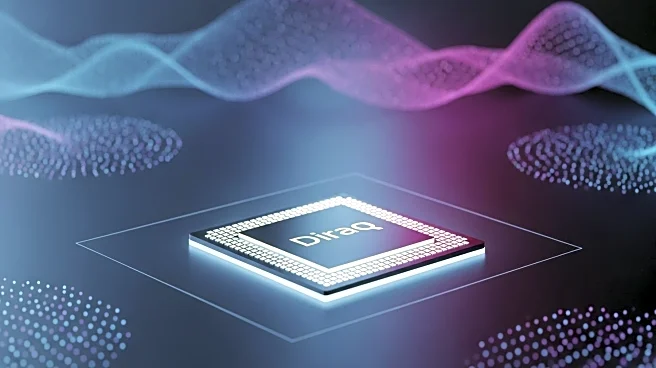What's Happening?
Diraq, a nano-tech startup from UNSW Sydney, has demonstrated that its quantum chips maintain high accuracy in real-world production settings. Collaborating with the Interuniversity Microelectronics Centre (imec), Diraq's chips achieved over 99% fidelity in operations involving two quantum bits, a crucial step towards making quantum computers commercially viable. This breakthrough indicates that Diraq's silicon-based quantum processors can be manufactured using existing semiconductor industry processes, paving the way for scalable quantum computing solutions.
Why It's Important?
The ability to produce high-fidelity quantum chips at scale is a significant milestone in the quest for utility-scale quantum computing. Quantum computers have the potential to solve complex problems beyond the reach of current high-performance computers, impacting industries such as cryptography, materials science, and pharmaceuticals. Diraq's success in integrating quantum chip production with established semiconductor processes could accelerate the development and deployment of quantum computing technologies, offering a cost-effective path to commercial viability.
What's Next?
Diraq's achievement sets the stage for further advancements in quantum computing, with the potential to reach utility scale where the commercial value of quantum computers exceeds their operational costs. Continued collaboration with industry partners and adherence to initiatives like the Quantum Benchmarking Initiative will be crucial in achieving this goal. As the technology matures, it is expected to attract increased investment and interest from both the public and private sectors.
Beyond the Headlines
The development of quantum computing raises questions about the future of data security and encryption, as quantum computers could potentially break current cryptographic codes. This necessitates the development of new encryption methods to safeguard sensitive information. Additionally, the integration of quantum computing into existing technological infrastructures will require significant adaptation and innovation.











